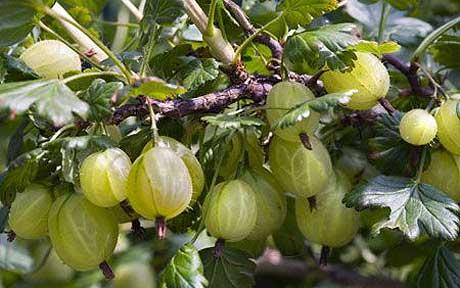Rode Hall features in The Daily Telegraph Gardening Supplement
The following article appeared in The Daily Telegraph on 6th July 2010.
 Certain country houses have a timeless charm. By the time you've wound along a long drive through Reptonian parkland to arrive at Rode Hall, near Congleton in Cheshire, a mellow quality that positively slows down the pace of life will have stolen up on you.
Certain country houses have a timeless charm. By the time you've wound along a long drive through Reptonian parkland to arrive at Rode Hall, near Congleton in Cheshire, a mellow quality that positively slows down the pace of life will have stolen up on you.
Rode is a family home handed down the generations and many distinguished horticulturists have passed through - in the rocky woodland dell to the west, gentleman gardener James Russell limbed up the rhododendrons and introduced scented Loderi varieties and late-flowering azaleas. The climbing roses growing through them should now be in flower.
In the Sixties rose breeder Hilda Murrell contributed advice on best varieties for the rose garden. Snowdrops, introduced by Sibella Egerton in 1833, are an attraction early in the year.
In June the large walled kitchen garden is at its best and is home to head gardener and champion gooseberry grower Kelvin Archer who, until 2009, held the world record for the heaviest gooseberry.
This part of Cheshire, centred on Jodrell Bank, is home to a hard core of historic gooseberry societies, whose members live and breathe local varieties and production methods - all closely guarded secrets. The Egton Bridge Old Gooseberry Society is the best known and its annual show is the apogee of the gooseberry year.
Kelvin has been showing for many years and is philosophical about world records: "Growing a champion gooseberry is very hard to do, you need perfect conditions and this year there's no way the latest record [set by Bryan Nellist] will be broken. It's been too dry and flower set was too late in the year."
Kelvin grows his champion plants in the walled garden at Rode Hall, all in cages and fan-trained into small trees, with 15-20 fruit on each bush. Traditional varieties for super gooseberries are 'Montrose' (Kelvin's record specimen was one of these, grown in 1993), 'Surprise' and 'Lord Derby'.
For your average gardener, the gooseberry game is very different. Kelvin also grows culinary and dessert gooseberries, which have just started cropping and should continue for three to four weeks.
He grows them on naturally shaped bushes, which he prunes in November, mulches with garden compost and feeds with pelleted organic chicken manure in spring.
American gooseberry mildew can be a serious problem, but Kelvin doesn't spray, not even with sulphur, the organic-approved method. "I think air circulation is the key to keeping the mildew away, keep the centre of the bush open.
We get a little sometimes, it doesn't affect the crop. But some people are completely wiped out by it." For excellent flavour he likes the yellow dessert variety 'Leveller'.
More on mildew
Expert fruit grower Adrian Baggaley, in Nottinghamshire, has been trying mildew-resistant gooseberries. "They're not a patch on the old dessert varieties," he says. "But spraying is a must if you are growing the old ones." (Bayer Garden's Systhane Fungus Fighter is one of the few chemicals still available to amateurs.)
'Invicta' is an old, green culinary variety, very reliable and mildew resistant. "I use it for gooseberry and elderflower wine and jam. It's a good cropper," he said.
'Pax' is a dessert variety, but not up to much in Adrian's opinion compared with 'Victoria' or 'Golden Drop', two old varieties he tried at Brogdale, home of the National Fruit Collections - "the flavour is out of this world," he says.
Growing tips
Adrian started off growing gooseberries as cordons, but found that a fan, trained around a cage, produces bigger, better fruit. He recommends a cage as "blackbirds are an absolute nuisance, as are robins", but if you don't have one, try fans on a south-facing wall. Gooseberries grown as standards look attractive and make picking easy, but are not ideal in a windy spot.
Visiting Rode Hall
Gardens open Tues, Wed, Thurs; house open Wed & BH, 2pm-5pm, until Sept. Entry house & garden: £6 adults, £5 seniors. Garden only: £4 adults, £3 seniors. Farmers' market first Saturday each month (01270 873237; www.rodehall.co.uk)
Recommended varieties
'Rokula' Dessert, red, resistant to mildew
'Martlet' Dessert/culinary, red, resistant to mildew
'Pax' Dessert, red, thornless, resistant to mildew
'Whitesmith' Dessert/culinary, green, resistant to mildew
'Lord Derby' Dessert/culinary, red, some resistance to mildew
'Whinhams Industry' Dessert, red, susceptible to mildew
'Invicta' Culinary, green, resistant to mildew
'Leveller' Dessert, green, susceptible to mildew
'Lancashire Lad' Dessert/culinary, red, slight resistance to mildew
Gooseberry info
Brogdale National Collections, Kent (01795 536250; www.brogdalecollections.co.uk)
Egton Bridge Gooseberry Show is on August 3. Open to the public from 2pm, St Hedda's Schoolroom, Egton Bridge, N Yorks (www.egtongooseberryshow.org.uk).



